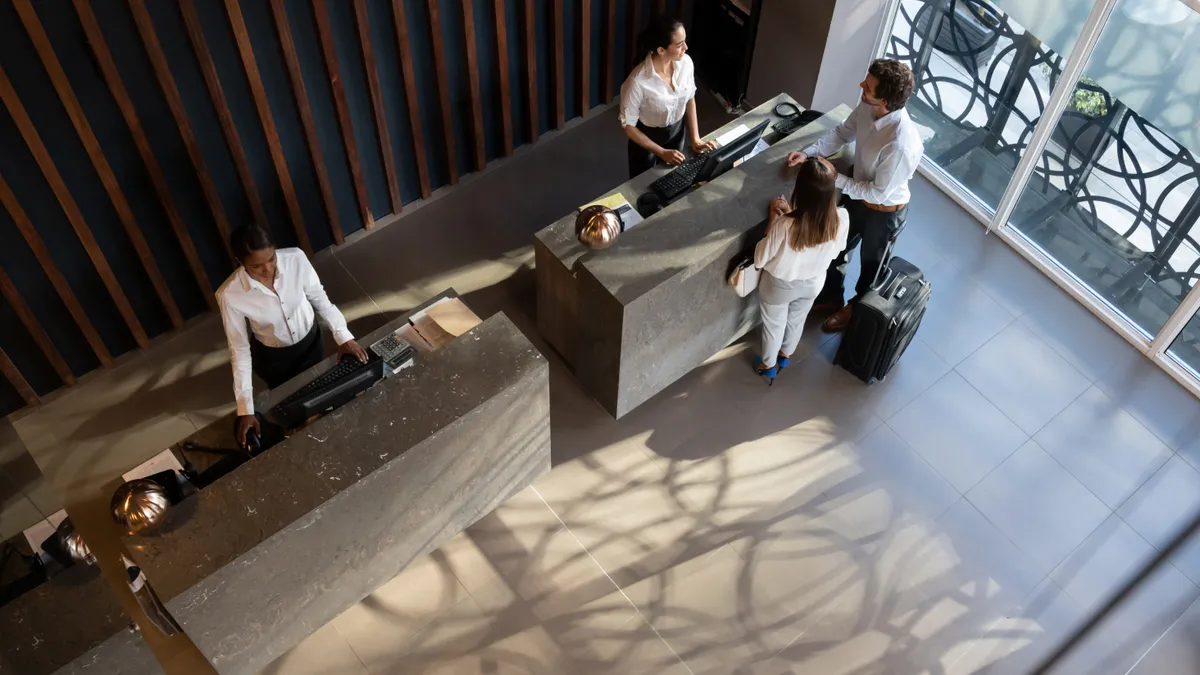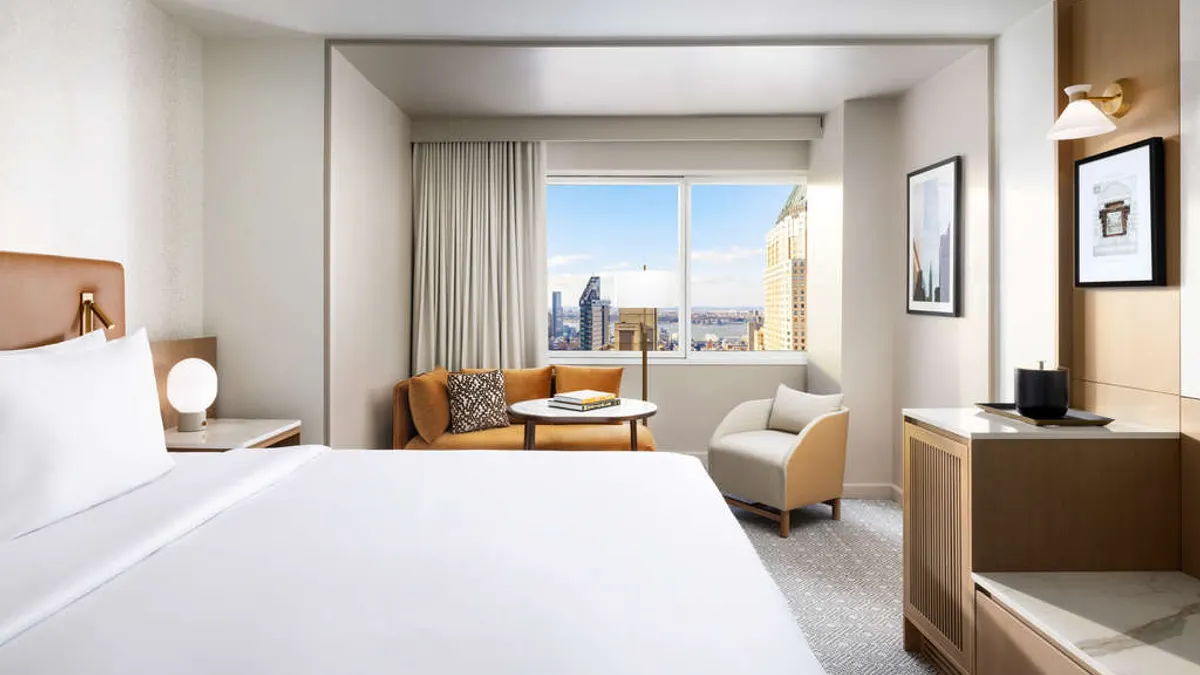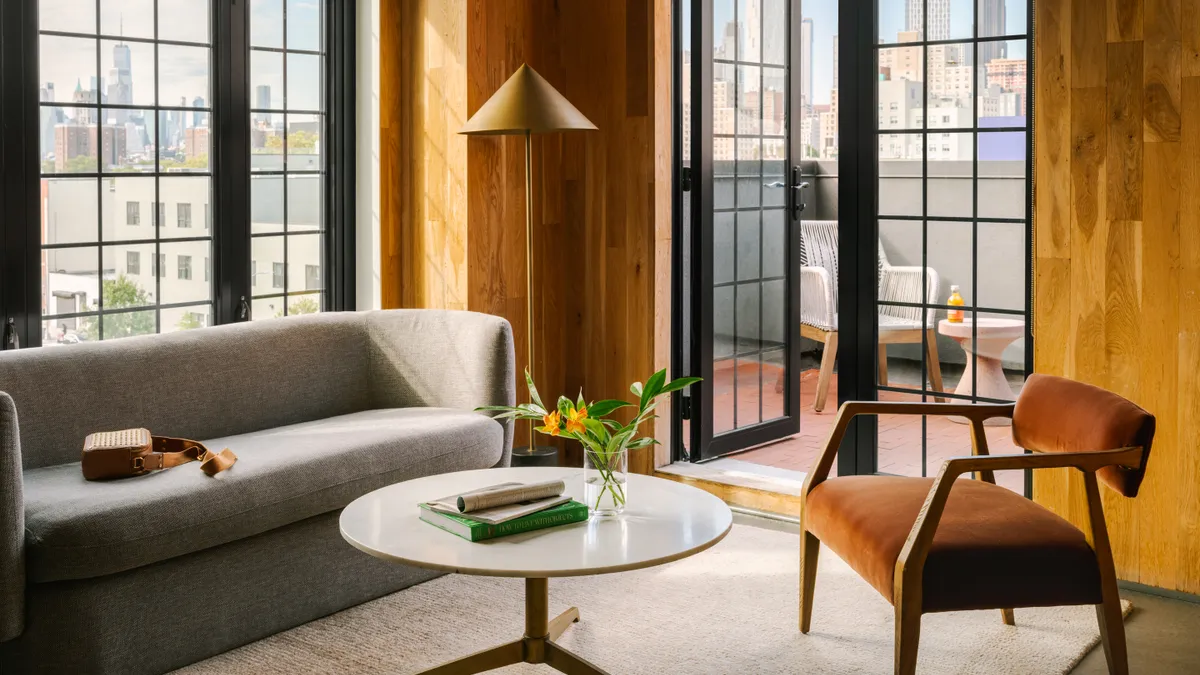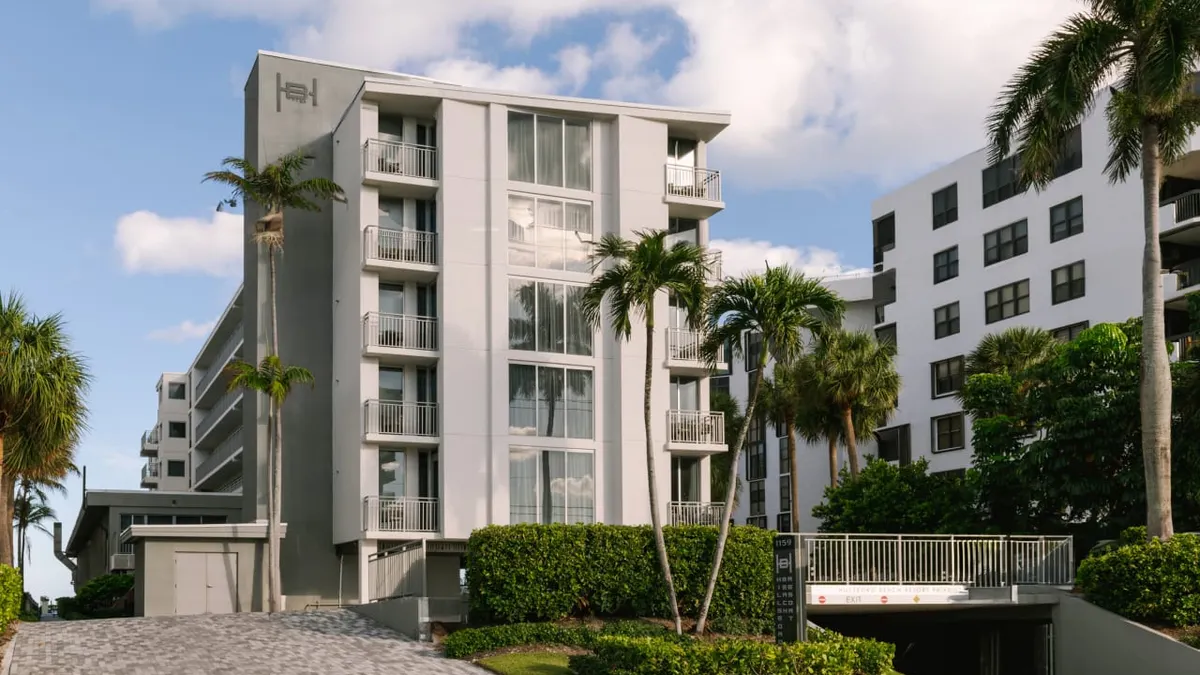The following is a guest post from John Dorer, CEO at labor solutions provider EB3.Work. Opinions are the author’s own.
Hotels, restaurants and resorts have been bearing the brunt of a historic labor shortage since the pandemic. Now they’re heading into the critical summer months with even fewer of the workers that they need.
Summer is the hospitality industry’s busy season, and this year could feel a lot like that of 2020 if things don’t improve soon. The industry is faced with the same hiring problems that have dogged it since the pandemic. But now, new pressures are adding to the challenge, making it hard to find and retain the staff needed to stay ahead of the summer crunch.
As Trump administration deportations and tariffs take hold, they are creating the perfect storm. Tariffs are driving up prices on goods and supplies, while deportations are removing longtime workers from service jobs. Adding to this tough situation is the fact that travel demand is softening as worries over the economy grow.
This summer will be a tough one for the hospitality industry, but there is still time to navigate around ongoing labor challenges. Businesses that succeed in adapting quickly, pivoting to support their teams, will come out stronger in the end.
Pandemic slump persists
Thousands of hospitality workers lost or left their jobs during the pandemic, and many have not returned. Today, fewer people are working in housekeeping, waitstaff, bartending, concierge, barista and chef roles. Even as the travel industry has made a comeback in the years following COVID-19, the labor supply hasn’t fully recovered.
While raising wages and offering signing bonuses and flexible hours have helped hotels in some ways, hoteliers still report not being able to fill critical roles. As tariffs and deportations further beleaguer the industry, labor shortages are growing worse by the day.
Tariffs complicate hiring
Due to tariffs, higher costs are a problem across the hospitality industry. Things like towels, soap, food and cleaning supplies could all be more expensive now.
When prices spike, business owners have little recourse but to find ways to cut the added costs from other places. This often means a slowdown in the hiring of new staff. It can also mean a delay in pay raises. Some businesses may reduce their training budgets, while others run on even leaner shifts.
At the same time, the consumer may be faced with higher prices that make their travel more expensive. This has left many to reconsider vacation plans — maybe opting for a shorter trip, fewer meals out or staying at a budget hotel. All of these factors contribute to a drop in revenue for hotels trying to grow, making even small hiring decisions feel risky.
Deportations shrink remaining workforce
Meanwhile, an increase in deportations is removing workers from critical hotel roles.
Immigrant workers fuel much of the hospitality industry, often taking on housekeeping or kitchen jobs that keep hotels and restaurants running. When one co-worker is deported, the whole team feels it, as it creates a gap in daily operations. The remaining staff ends up taking on more work, while guests wait longer for service.
Another chilling effect of deportations is the fear they spread among workers. Potential workers stop showing up to job fairs, while others steer clear of public-facing roles. Other workers might leave the area. Even those with legal status suddenly become harder to reach. Fewer applicants means fewer hires, and the labor shortage cycle continues.
What guests notice
While the worsening labor shortage upends operations behind the scenes, it changes the experience for travelers, too. Rooms may take longer to be ready or housekeeping may not be able to visit every day. Pools might open late or close early, while other services and amenities may go missing altogether.
Guests may not know the reason, but they will surely feel the difference. A slower check-in, longer wait for dinner or a missing amenity shape how travelers view a trip.
Hospitality employers must adapt
Wages matter, but in today’s labor market, pay is only part of the picture. Many workers desire something quite simple: stability and respect. This starts with reliable and consistent work schedules. It also means fair treatment, and clean and safe work environments are equally important.
Some hotels are now offering rides to and from work. Others are providing shared housing near the job site. More still cover the cost of meals during long shifts. These changes are not cheap, but they do wonders in reducing turnover.
Trust matters, too. When leadership keeps its word, workers stay longer. When the staff feels supported, they bring in friends and family. Small gestures are big in building strong teams.


















